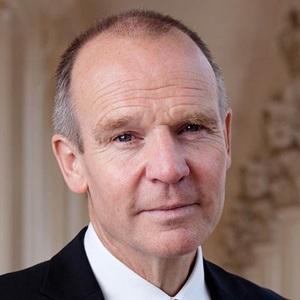
WASHINGTON — After what was widely seen as a halting response and disjointed leadership during the 2014 Ebola outbreak, global health officials must increase engagement among countries and communities to better address emerging epidemics such as Zika, public health experts say.
“Will Zika be a story of global science engagement and global engagement in other forms?” said Christopher Dye, director of strategy in the Office of the Director General at the World Health Organization, during a Feb. 12 plenary address at the American Association for the Advancement of Science (AAAS) annual meeting.
Leaders today should, he said, heed this story:
On Dec. 6, 2013, 2-year-old Emile Ouamouno died of Ebola in Guinea, becoming “patient zero” in the epidemic But it was more than three months and nearly 50 additional deaths later before the first case was officially confirmed on March 21, 2014. The epidemic went on to claim over 11,000 lives.
“That 3-month period was an important period that we collectively missed,” Dye said.
To avoid such devastating lapses for future epidemics, the international community must create close communication links among international healthcare systems.
The WHO facilitates cooperation among 196 countries to improve global health security. But 78 of those countries failed to report on their adherence to established emergency measures before the Ebola epidemic. Those that did report gave themselves mixed reviews on their ability to perform in a world health crisis.
At the local level, lack of participation of communities at risk was another crucial failing of the 2014 Ebola response, Dye said. Fear of folkloric curses and disease, and mistrust of health officials and health care workers led many families to flee hospitals.
Dye told the story of a group of Guineans who smuggled away the T-shirt-, jeans- and sunglasses-clad corpse of a man who had died of Ebola by seating him upright in a taxi, crammed between three people.
“This is a contact disease,” he said. “This is how it gets transmitted.”
Six people were jailed in relation to the incident and held in isolation.
After months of an epidemic and ongoing efforts by health workers to teach safe practices, why do things like this happen?
“Despite all evidence, the people involved do not trust anyone from outside of their community,” Dye said.
For this reason, it is essential to engage citizens, especially trusted leaders, near outbreaks he said. And health care workers should acknowledge and respect the customs of local people to gain their trust.
Dye told another story, this time of a man from Sierra Leone who fell ill with Ebola and died while in isolation imposed by local authorities. Shortly after his death, a nurse claimed to have seen his ghost in the village, and the community said they needed to banish the ghost.
“Now, exorcism is not one of the routine duties for WHO officials, so we had to take advice,” Dye said.
They proceeded to collect all the items the community recommended, and conducted the exorcism ceremony. In so doing, they gained the trust of the people in the village.
“The most important point was that WHO collaborated in this and, given its success, we were always welcomed back in that village,” Dye said.
As a result of this community engagement, WHO officials could successfully talk to citizens about changing customs that spread Ebola. After discussion with health professionals, local officials were persuaded that contact with an infected corpse was dangerous and that washing bodies after death, customary in Sierra Leone, should be discontinued. The result was a decrease in resistance to WHO guidance, and, in turn, a decrease in Ebola transmission.
Community engagement at the international and local levels is just one part of a larger plan that uses law, marketing, anthropology, sociology and economics to improve our ability to control infectious disease, Dye said.
And with the lessons it has learned, the WHO can more effectively play a key role as global communications coordinator, especially as more and more public health organizations are created.
Rachel Butch is a senior at the University of Pittsburgh studying biology and Public and Professional Writing. Reach her at Rachel.M.Butch@gmail.com
